Imagine your home network or small business network as a building. It has a front door with a lock, your password-protected Wi-Fi. You might also have a security guard at the entrance. This guard, your firewall, checks IDs to ensure only authorized individuals gain entry. This setup seems quite secure, doesn’t it?
Consider a scenario where a delivery person arrives. The guard inspects their ID and deems it legitimate, allowing entry. Yet, the package they carry might harbor dangers. The guard only verified the person, not the contents. This mirrors the issue with basic network security, which verifies identities but not the items being transported.
In the digital realm, these perilous packages equate to malware, phishing links, and viruses. They can masquerade as harmless websites. Clicking a seemingly innocuous link can unleash malicious software onto your device. Your firewall, while vigilant, might not intercept these threats, as it trusts the request’s origin.
This scenario highlights the necessity for enhanced security measures. You require a sophisticated screening mechanism, akin to UniFi CyberSecure by Proofpoint. It transcends mere gatekeeping, functioning as a proactive security intelligence service at your digital entrance.
What Is UniFi CyberSecure, and Who Are the Players?
The name UniFi CyberSecure is composed of two elements: UniFi and Proofpoint.
UniFi is a well-known brand in the networking sector, renowned for its robust hardware. Ubiquiti’s UniFi line offers access points, switches, and gateways, providing control and reliability. They are the architects and builders of your digital infrastructure, constructing the framework of your network.
Proofpoint, on the other hand, is a cybersecurity giant. Specializing in data and intelligence, they protect large corporations from email and internet threats. Their expertise lies in identifying malicious actors and their tactics, maintaining a vast, up-to-date database of internet dangers.
The collaboration between UniFi and Proofpoint is a strategic one. UniFi supplies the hardware, the gateway for all internet traffic. Proofpoint contributes the intelligence, scanning this traffic for threats. This partnership equates to having a top-notch detective safeguarding your digital environment.
In essence, UniFi CyberSecure is a subscription service for your UniFi gateway. It leverages Proofpoint’s advanced threat intelligence to block harmful web traffic before it reaches your devices.
How Does It Actually Work? The Simple Explanation
The core concept is straightforward, requiring no technical expertise. It relies on DNS filtering.
DNS stands for Domain Name System, akin to the internet’s directory. It translates domain names into IP addresses, making navigation easier. When you enter a website’s name in your browser, your computer requests the IP address from a DNS server. This process is essential for every online activity.
Cybersecure by Proofpoint enhances this process. It turns your UniFi gateway into a smart DNS server. It scrutinizes every DNS request against Proofpoint’s extensive list of malicious sites, ensuring your network remains secure.
- If you try to go to a known malicious website: Your computer asks, “Where is bad-virus-site.com?” Your UniFi gateway checks the list, sees it’s a dangerous place, and simply refuses to answer. Instead of connecting you to the dangerous site, it sends you to a safe block page that says, “This site has been blocked for your protection.” The threat is stopped. The dangerous package never even got dispatched.
- If you want to block certain categories: You can also tell it, “I don’t want anyone on my network going to gambling sites or adult content sites.” When someone tries to visit one, the same thing happens. The request is denied at the source.
This is incredibly powerful because it happens at the network level. It protects every single device connected to your network. You don’t need to install special software on your laptop, your phone, your smart TV, or your friend’s tablet when they visit. If it’s on your Wi-Fi, it’s protected.
A Story from the Coffee Shop
Let’s make this more real. Meet Sarah. Sarah owns a popular local coffee shop called “The Daily Grind.” She offers free Wi-Fi to her customers. She uses a UniFi network because it’s reliable and she can manage it easily.
One afternoon, a regular customer, Mark, is sitting in the corner, working on his laptop. He gets an email that looks like it’s from his bank. It says his account has a problem and he needs to log in immediately. The email looks very convincing. Mark clicks the link.
Scenario A: Before CyberSecure. The link takes Mark to a fake banking website. It looks exactly like the real one. He enters his username and password. The bad guys now have his credentials. Even worse, the fake website secretly downloaded malware to his laptop. That malware could now try to spread to other devices on the coffee shop’s Wi-Fi. Sarah has a big problem, and she doesn’t even know it yet. A customer’s data was stolen while using her service.
Scenario B: After Sarah subscribed to UniFi CyberSecure. Mark gets the same email. He clicks the same link. But this time, something different happens. His browser doesn’t load the fake banking site. Instead, a clean, simple page appears. It says: “This site has been blocked by The Daily Grind’s network for your security. It is classified as Phishing.” Mark is confused for a second, but then he realizes he almost fell for a scam. He’s safe. The coffee shop’s network is safe. Sarah’s reputation is protected.
This is the real-world value. It’s proactive protection. It doesn’t wait for a virus to be detected on a computer. It stops the connection to the source of the danger.
“The best way to deal with a threat is to never let it in the door. Network-level filtering is one of the most effective security layers you can add to any home or business.” – Anonymous Security Analyst
What Kinds of Threats Can It Block?
Proofpoint’s intelligence is vast. It’s not just blocking one or two types of bad websites. It’s a shield against a wide range of digital dangers. Here’s a simple table breaking down what it protects you from.
| Threat Type | Simple Explanation | How UniFi CyberSecure Helps |
|---|---|---|
| Malware | This is malicious software designed to harm your computer, like viruses or ransomware that locks up your files. | It blocks access to the websites that host and distribute malware, so you can’t accidentally download it. |
| Phishing | These are scam websites that trick you into giving away personal information, like passwords or credit card numbers. | It identifies and blocks these fake sites. Even if you click a convincing link, you won’t reach the dangerous page. |
| Command & Control (C2) | If a device is already infected, it tries to “phone home” to a server run by the bad guys to get instructions or send stolen data. | It blocks these communication channels, effectively cutting the head off the snake. The malware can’t get new orders. |
| Botnets | A network of infected computers that can be used to launch attacks. Your computer could become an unwilling soldier in a hacker’s army. | It blocks the C2 communications that allow a device to be controlled as part of a botnet. |
| Spam Sources | Blocks websites known for sending out massive amounts of junk email and malicious links. | By preventing connections to these spam domains, it reduces the overall threat exposure of your network. |
Is It Complicated to Set Up and Manage?
Setting up UniFi CyberSecure is incredibly simple, thanks to Ubiquiti’s design. It’s a “few clicks” process. You don’t need to be a network security professional.
The general process is:
- You log into your UniFi Network Controller (the software or device you use to manage your network).
- You navigate to the Security section.
- You’ll see the option for CyberSecure. You start a subscription.
- Once active, you get a simple dashboard. You can choose which threat categories to block. The most critical ones are usually on by default.
- You can also choose to block other content categories, like social media, adult content, P2P/torrents, or gambling. This is great for businesses that want to keep employees on task or for parents at home.
That’s it. No complicated rules to write. No command lines to type. You select the level of protection you want, and the system takes care of the rest. The solution is managed in the cloud, with threat intelligence from Proofpoint updated constantly and automatically. You truly can “set it and forget it,” knowing that the powerful cybersecure by proofpoint engine is working for you 24/7.
Comparing Your Options
How does this stack up against other security measures you might have? Let’s compare.
| Protection Method | How It Works | Strengths | Weaknesses |
|---|---|---|---|
| Antivirus Software | Runs on individual computers. Scans files and processes to find known viruses. | Good at cleaning up an infection once it’s on a device. Can find known viruses. | Must be installed on every device. Can slow down the computer. Might not stop brand-new “zero-day” threats. Doesn’t protect guests or smart devices. |
| Basic Firewall | Part of your router/gateway. Controls which “ports” are open and blocks unsolicited incoming traffic. | Essential first line of defense. Blocks many automated scans and attacks from the internet. | Doesn’t inspect traffic content. If you request a malicious file, it will likely let it through because you asked for it. |
| DIY DNS Filtering (e.g., Pi-hole) | You set up your own server (like a Raspberry Pi) to filter DNS requests using community-managed blocklists. | Highly customizable, no subscription fee, great for hobbyists who love to tinker. Blocks ads very well. | You have to build and maintain it yourself. Blocklists can be out of date. Lacks the enterprise-grade, real-time threat intelligence of a service like Proofpoint. |
| UniFi CyberSecure by Proofpoint | Integrated DNS filtering at the gateway level, powered by professional, real-time threat intelligence. | Protects all devices on the network. Easy to set up and manage. Backed by world-class security research. Constantly updated. | It is a subscription-based service. Requires a compatible UniFi gateway. |
The Final Word: Is It Worth It?
In today’s world, connecting to the internet is like walking through a city with some very dangerous neighborhoods. You wouldn’t do that without being aware of your surroundings and taking precautions. Your digital life is no different.
For a small business, a single ransomware attack can be devastating, costing thousands of dollars and ruining your reputation. For a family, protecting children from the darker corners of the internet and protecting everyone from scams is a top priority.
UniFi CyberSecure by Proofpoint offers a simple, powerful, and complete security layer. It shifts the protection from individual devices to the network’s front door, a smarter and more effective strategy. It leverages the power of one of the world’s top security firms, making it accessible and affordable for UniFi users.
It’s not just about technology; it’s about peace of mind. It’s about knowing that you have a vigilant, intelligent guard watching over your entire network, 24 hours a day, 7 days a week. In a world of ever-increasing digital threats, that peace of mind is invaluable. Taking control of your network’s security is no longer an option for experts only; it’s a necessary step for everyone.




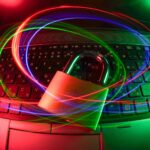










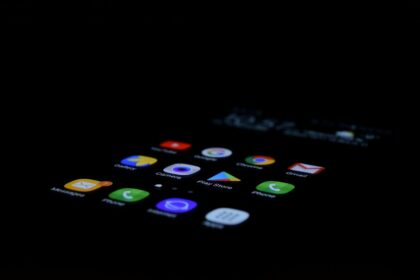
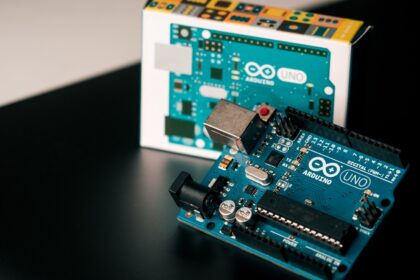


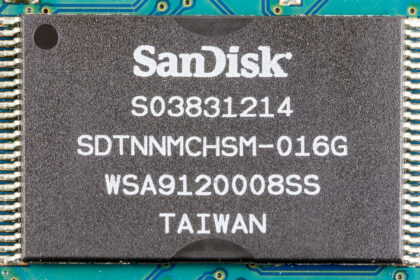

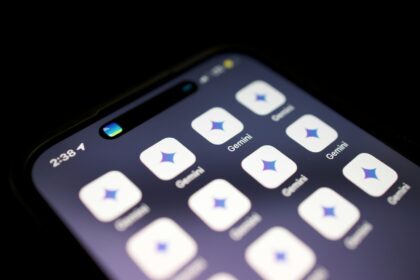
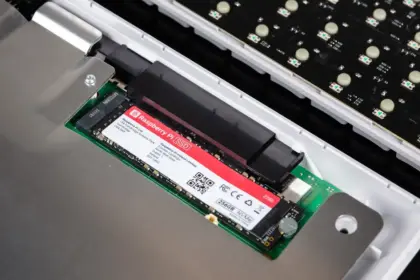


how about devices doesn’t use local gateway as DNS ? such as MS Edge and Google Chrome? They use DNS over HTTPS. Does that mean those traffic will still go through?